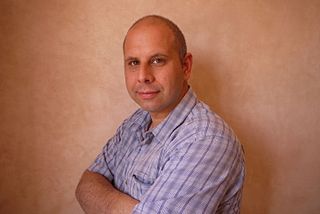A Quote by William Osler
Medicine is learned by the bedside and not in the classroom. Let not your conceptions of disease come from words heard in the lecture room or read from the book. See, and then reason and compare and control. But see first.
Related Quotes
Do you know that the words meditation and medicine come from the same root? Meditation is a kind of medicine; its use is only for the time being. Once you have learned the quality, then you need not do any particular meditation, then the meditation has to spread all over your life. Only when you are meditative twenty-four hours a day then can you attain, then you have attained. Even sleeping is meditation.
When I heard that heart disease kills more women than all cancers combined - when I heard that, I knew. The other thing that's very important is that heart disease...is preventable. There are some specific lifestyle changes that women can make: losing weight, not smoking, exercising, eating healthy foods. Knowing the risk factors: high blood pressure, high cholesterol, diabetes, [being] overweight. And if you have heart disease in your family, you should see your doctor. Because this disease is preventable.
What I do usually is read the book first, for pleasure, to see if my brain starts connecting with it, as a movie. And then, if I say yes, I read it again, only this time I take a pen and, inside the book, I say, "Okay, this is a scene. I don't need this. I'm going to try this. I'm not going to take this." And then, I use that book like a bible and each chapter heading, I write a menu of what's in that chapter, in case I ever need to reference it. And then, I start to outline and write it. I get in there and it starts to evolve, based on having re-read it again.
If you take a book with you on a journey," Mo had said when he put the first one in her box, "an odd thing happens: The book begins collecting your memories. And forever after you have only to open that book to be back where you first read it. It will all come into your mind with the very first words: the sights you saw in that place, what it smelled like, the ice cream you ate while you were reading it... yes, books are like flypaper—memories cling to the printed page better than anything else.
Once in a very long time you come across a book that is far, far more than the ink, the glue and the paper, a book that seeps into your blood. With such a book the impact isn't necessarily obvious at first...but the more you read it and re-read it, and live with it, and travel with it, the more it speaks to you, and the more you realize that you cannot live without that book. It's then that the wisdom hidden inside, the seed, is passed on.
But privately when things got very bad I often looked into books to see whether I could find some helpful words, and one day I read, "The forgiveness of sins is perpetual and righteousness first is not required." This impressed me so deeply that I went around saying it to myself. But then I forgot which book it was.
I want to see you. Know your voice. Recognize you when you first come 'round the corner. Sense your scent when I come into a room you've just left. Know the lift of your heel, the glide of your foot. Become familiar with the way you purse your lips then let them part, just the slightest bit, when I lean in to your space and kiss you. I want to know the joy of how you whisper "more
You are in front of your brother, but your mind is on many other things, so you don’t really see your brother. Maybe he is having some trouble, but you don’t see it, not even when you share the same room. But mindfulness brings you there, to the present, and then you see. Train yourself all day long to bring your mind to your body and to be present with your food, your friends, your work, everything, because the more you concentrate, the deeper you will see.
I read reviews and consider myself pretty 'plugged in' to the literary cosmos, yet one of the things I love best about book-touring is the opportunity to compare notes with favorite booksellers around the country. I always come home with books by authors I'd never heard of - or books I've read about but didn't realize I might love.
If one of you pass out and go to the emergency room, the hospital has to see you. But when you go to the emergency room, you've had a stroke, or you've had a heart attack. If you had preventative medicine, you could maybe be taking your high blood pressure medicine so you wouldn't have a stroke and cut down the costs.





































